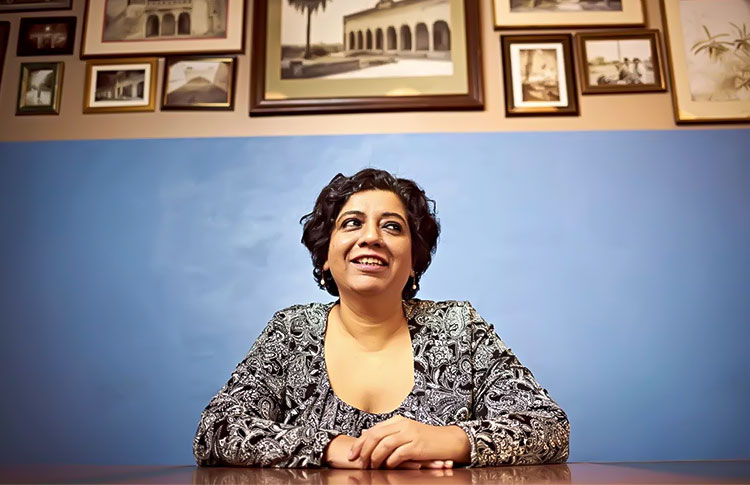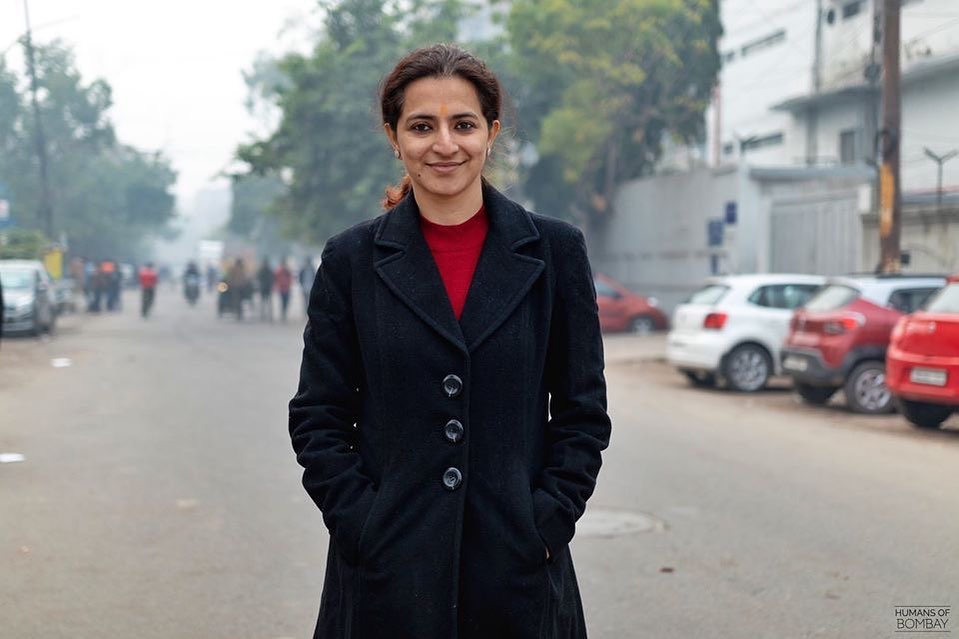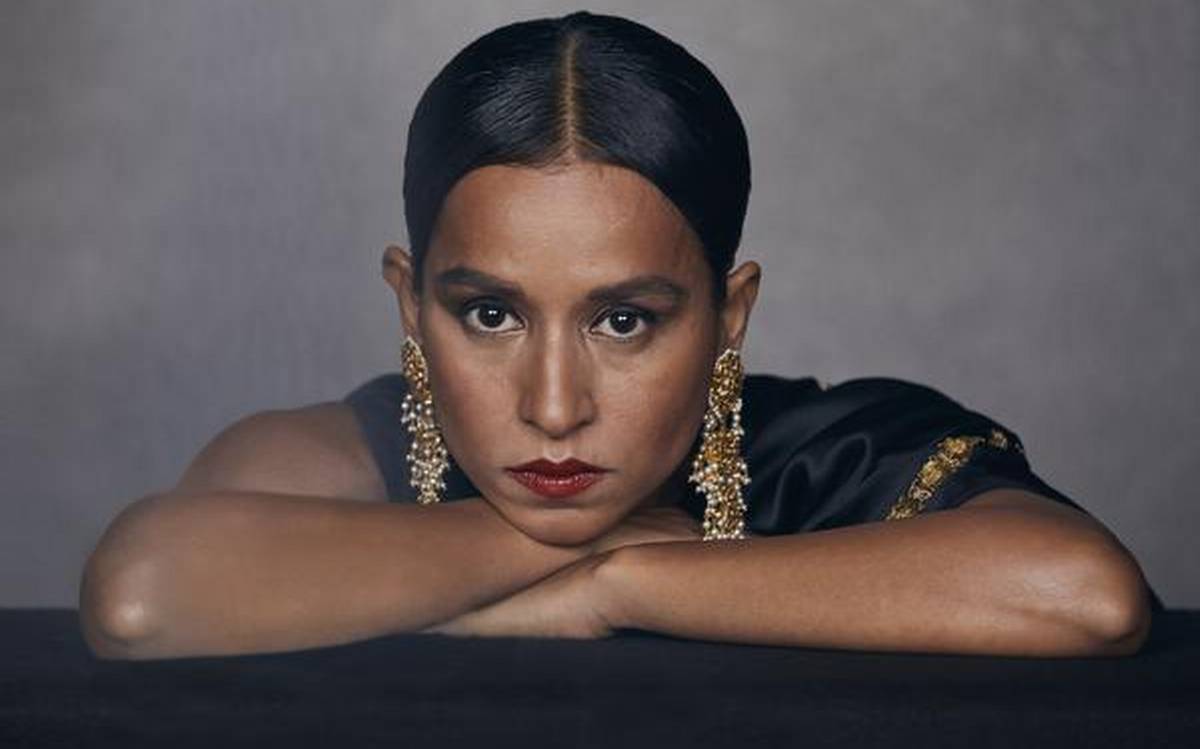Journalist Rituparna Chatterjee On Raising A Feminist Son & Wrenching Spaces Away From Men
- IWB Post
- May 7, 2019

A journalist and feminist, she writes on gender politics, disparity, and social inequality. Her association with journalism dates back to 2003 when she started reporting for The Statesman, before moving to work with Press Trust Of India, followed by Thomson Reuters, Network 18, and HuffPost India.
Popular as @MasalaBai on Twitter, we’re in conversation with Rituparna Chatterjee!
IWB recently got in touch with Rituparna for our ongoing Twitter Campaign #Together4Feminism. With an aim to unite the efforts of feminists from different generations, we moderated a Twitter dialogue between filmmaker-activist Bishakha Datta (@busydot) and Rituparna, and dug deeper into understanding the generational divide in feminism.
“I think as women, growing up, we all feel the gap in representation in all spheres of interactions, but it was only in my late 20s and all of my 30s that I truly found the words to express the uneasiness in feminist texts and conversations,” tweeted Rituparna on identifying as a feminist.
Keen to learn more from her experiences and modest opinions? Find excerpts from our chat below:
Women journalists have to face many prejudices and are often stereotyped as better suited for reporting soft beats. What is your take on that?
I don’t know so much about soft beats, but I remember that back in 2003-2004, when I first started out as a reporter, women had to face sexism at various levels. There was an active bias and a sharp distinction between women who reported versus those on desk. The latter considered the more respectful option for women with less travel and set timings. But the situation has got better now; there are more women in all branches of the profession.
In @dbpostnews today I discuss the woeful lack of representation of female political icons in India’s sculptural landscape, amidst the political muscle play of statue vandalism #StatuesOfWomen
18 Likes, 1 Comments – Rituparna Chatterjee (@rituparnachatterjee) on Instagram: “In @dbpostnews today I discuss the woeful lack of representation of female political icons in…”
And with men in the majority back then, the situation must have been worse?
Systemic patriarchy drove many of the media houses as it does now. And because of the lack of majority women managers, one of the biggest issues in those days was that you couldn’t freely discuss menstruation. We’d be bending over with cramps but would have to tell our reporting manager that we have a fever. To which he would say, “take crocin”. And if one uttered the word period, it would make men cringe, and give them the authority to call her “forward”.
When did you see things starting to get better?
In the last 4-5 years, the Internet boom has created a digital space for feminist websites and blogs, and has made it much easier to have public conversations. 15 years ago, in a newsroom, you could see mostly heads of men bent over their computers, men who would hesitate to even make eye-contact with a woman. Having more women at the workplace makes the difference. More and more women should be employed in top and middle management positions of media houses. It is happening gradually, women are wrenching away spaces dominated by men from men.
Till the poor bare their bleeding wounds, the rich can’t romanticise their poverty.
18 Likes, 1 Comments – Rituparna Chatterjee (@rituparnachatterjee) on Instagram: “Till the poor bare their bleeding wounds, the rich can’t romanticise their poverty.”
Speaking of safety, with the advent of social media, women and journalists are now more accessible and hence constantly inundated with threats and trolling. How do you think it can/should be dealt with?
The street phenomena of catcalling and harassment has now found its Internet space in the form of trolling. Seeing women find a voice and identity online makes some men insecure, and there will always be those who’d want to override or dismiss it.
But to say that it is the risk we have to take to have our voices out, would be absolving the wrongdoers; we are not supposed to be standing at guard for our safety and neither should we give up our space by logging out in response to the threats. And, hence, it becomes most important to find allies in women online, sort of safety in numbers.
What could be the possible reason that most aspiring women journalists take only Barkha Dutt’s name as their role model, and the reporting style of only men journalists attracts discussions?
The recognition that Barkha has received is commendable, and the work and efforts she has put in are worthy of admiration; she deserves to be where she is. But there have been other women, too. Uma Sudhir has just won the Chameli Devi Jain award for journalism, Shaili Chopra is the inspirational founder ofShe The People TV, Radhika Roy the co-founder of NDTV. I don’t think women market themselves aggressively. But that again goes against years of conditioning.
Tell us about some of the women journalists and authors whose columns and books you read.
Ah, many of them. For columns, I read Barkha quite often, Swati Chaturvedi is a brilliant investigative reporter, Supriya Sharma, Neha Dixit…. There are so many talented women journalists reporting and editing for various forums every day. Among women writers today I love Nilanjana Roy’s style. All time go-to women writers for me will always be Maya Angelou, Emily Dickinson, Virginia Woolf, Jane Austen.
Ze workspace #chaos
14 Likes, 1 Comments – Rituparna Chatterjee (@rituparnachatterjee) on Instagram: “Ze workspace #chaos”
Do you think the feminist outlook of a woman sees a change after marriage?
Marriage, by its very nature, is a patriarchal concept. And there are certain factors about it that go against the grain of feminism. A woman leaves her house, takes up her husband’s surname. I’m married and it hasn’t affected any of my beliefs. Even with regard to responsibility, it is a question of equality, and it should be an equal partnership between a man and a woman.
And, lastly, how are you raising your son as feminist? A piece of advice for parents?
I think the first step is to learn to demand your own space irrespective of whether you have a son or a daughter. And, also, make the child learn the concept of personal space. Introduce them slowly to various aspects of keeping house – cooking, cleaning; children have amazing perceptional skills, they learn what they see. Which is why I feel that partners need to be very careful about how they speak to each other, give each other respect.
But mostly where I struggle is in making my house gender neutral, which I believe is the only way forward. ‘Blue tiffin for boys and pink for girls’ isn’t a child’s construct, these are made by adults, and we must get rid of them.
First published on Mar 16, 2018.
- 0
- 0












